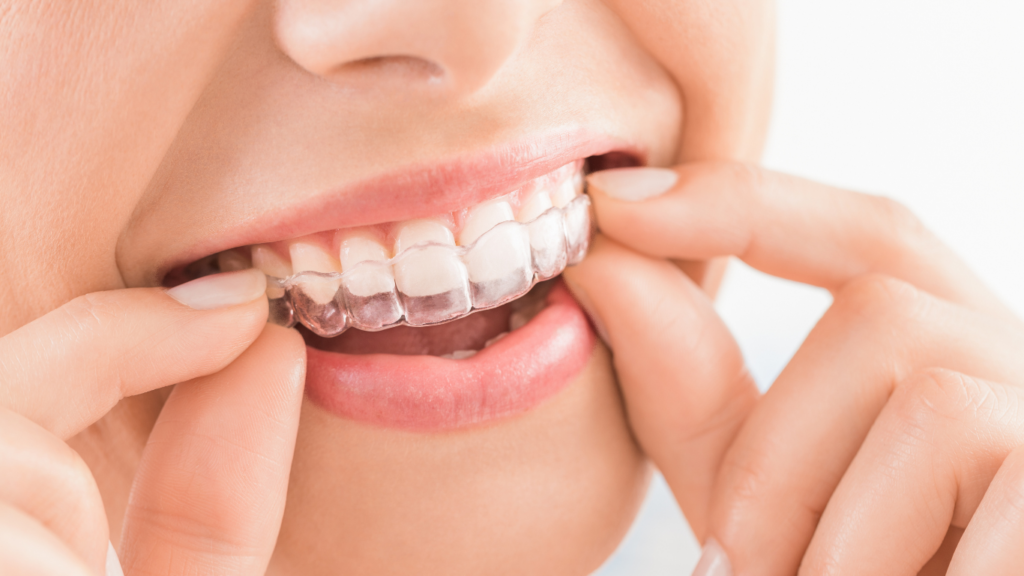Crossbites are a common dental issue that can affect both children and adults. If left untreated, they can lead to significant oral health problems, including jaw pain, uneven tooth wear, and even speech difficulties.
In this article, we will explore what a crossbite is, its causes, symptoms, available treatment options, and preventive measures to maintain a healthy smile.
What Is a Crossbite?
A crossbite is a type of dental misalignment (malocclusion) where one or more upper teeth sit inside the lower teeth when the mouth is closed. This can occur at the front of the mouth (anterior crossbite) or the back (posterior crossbite).
Unlike a normal bite where the upper teeth slightly overlap the lower teeth, a crossbite causes an improper fit between the upper and lower dental arches.
Types of Crossbites
- Anterior Crossbite: This occurs when one or more upper front teeth sit behind the lower front teeth.
- Posterior Crossbite: This happens when the upper back teeth bite inside the lower back teeth.
- Unilateral Crossbite: Affects one side of the mouth.
- Bilateral Crossbite: Affects both sides of the mouth.

Causes of Crossbites
Several factors contribute to the development of crossbites, including genetics, habits, and jaw development issues. Here are some common causes:
Genetics
Genetics play a significant role in dental alignment. If parents have a crossbite, their children are more likely to develop one as well.
Delayed or Abnormal Tooth Eruption
When baby teeth do not fall out in time, permanent teeth may erupt in incorrect positions, leading to misalignment.
Mouth Breathing
Chronic mouth breathing due to allergies, enlarged tonsils, or other issues can affect jaw development, leading to a crossbite.
Thumb Sucking and Other Oral Habits
Prolonged thumb sucking, pacifier use, or tongue thrusting can put pressure on the developing teeth and jaws, causing misalignment.
Jaw Size Discrepancy
When the upper jaw is too narrow compared to the lower jaw, it can result in a posterior crossbite.
Symptoms of a Crossbite
A crossbite may not always cause pain, but it can lead to various oral health issues over time. Some common symptoms include:
- Uneven tooth wear
- Jaw pain or temporomandibular joint (TMJ) discomfort
- Difficulty chewing or biting
- Speech problems (such as lisping)
- Facial asymmetry
- Gum recession (due to teeth biting into the gum tissue)
- Increased risk of cavities and gum disease due to misaligned teeth
Why Should You Treat a Crossbite?
Ignoring a crossbite can result in long-term oral health complications. Here are some reasons why treatment is essential:
- Prevents Tooth Damage: Misaligned teeth can wear down unevenly, leading to fractures and decay.
- Reduces TMJ Pain: Jaw misalignment can cause joint pain, headaches, and discomfort.
- Improves Facial Symmetry: Early treatment can help guide jaw development and prevent facial asymmetry.
- Enhances Chewing Function: A proper bite makes eating and chewing more efficient.
- Boosts Confidence: Correcting a crossbite can improve the appearance of your smile.
Treatment Options for Crossbites
Palatal Expanders (For Children and Adolescents)
Palatal expanders are devices used to gradually widen the upper jaw. They are particularly effective in treating posterior crossbites in children and teenagers whose jawbones are still developing.
Braces
Traditional braces are a reliable method for correcting crossbites by gradually shifting teeth into their proper positions. Braces can be used in both children and adults.
Clear Aligners (Invisalign)
For mild to moderate crossbites, clear aligners like Invisalign can effectively reposition the teeth without the need for metal brackets and wires. They are a popular choice among adults and teenagers due to their discreet appearance.

Jaw Surgery (Orthognathic Surgery)
In severe cases where a crossbite is caused by significant jaw misalignment, corrective jaw surgery may be necessary. This option is usually considered for adults whose jaw growth is complete.
Dental Bonding or Veneers
In minor cases, dental bonding or veneers can be used to adjust the appearance of misaligned teeth. However, this is more of a cosmetic fix rather than a functional correction.
Preventing Crossbites
While some crossbites are hereditary and unavoidable, there are steps you can take to minimize the risk:
- Monitor Oral Habits: Discourage thumb sucking, prolonged pacifier use, and tongue thrusting in young children.
- Encourage Proper Breathing: Address mouth breathing issues by consulting a pediatrician or ENT specialist if necessary.
- Early Orthodontic Evaluation: The American Association of Orthodontists recommends that children see an orthodontist by age 7 to detect any developing issues.
- Timely Dental Visits: Regular checkups allow your dentist to monitor tooth eruption and jaw development.
- Use Space Maintainers if Needed: If a baby tooth is lost too early, a space maintainer can help prevent misalignment.
FAQs About Crossbites
At What Age Should a Crossbite Be Treated?
The earlier, the better. Ideally, treatment begins in childhood when jaw growth can still be influenced. However, adults can also seek orthodontic solutions.
Can a Crossbite Fix Itself?
No, a crossbite will not correct itself and usually worsens over time if left untreated.
Is Invisalign Effective for Crossbites?
Yes, Invisalign can be effective for mild to moderate crossbites, but severe cases may require braces or surgery.
What Happens If You Don’t Treat a Crossbite?
Untreated crossbites can lead to jaw pain, tooth wear, gum issues, and even facial asymmetry over time.
How Long Does It Take to Fix a Crossbite?
Treatment duration varies depending on severity and method used. Braces and aligners usually take 12-24 months, while palatal expanders may require 6-12 months.
Modern Day Dental | St. Johns, FL
If you are seeking expert dental care and are located in or around St. Johns Florida, consult with the experts at Modern Day Dental to help maintain optimal oral health.
We use the latest, cutting edge technology to make dental procedures as smooth, fast and painless as possible.

